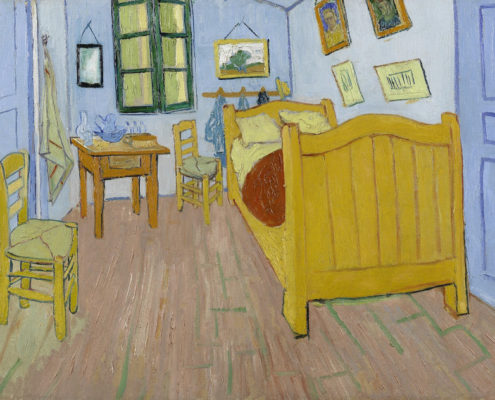FREQUENTLY ASKED QUESTIONS ABOUT DREAMS
(Adapted from the International Association for Study of Dreams website)
Is dream interpretation a form of health care, psychotherapy, or psychological/psychiatric treatment?
No. Although some people choose to explore dreams as part of contemporary mental health treatment, there is archeological evidence that the human desire to understand dreams dates back more than 4,000 years – long before the profession of psychotherapist existed. Further, ancient texts that focus on dream interpretation have been found in a wide variety of cultures, including Egypt, India, China, Greece, Rome, Mesopotamia, and Sri Lanka. Further, anthropologists have found that oral dream interpretation practices are used in nearly every corner of the world. It is important that people have the opportunity to learn from their dreams without needing to be in psychological treatment. Please see the PDI FAQ for more information about non-medical dream interpretation services offered through the PDI website, phone line, and LLC.
Does everyone dream?
Yes. Laboratory studies have shown that we experience our most vivid dreams during a type of sleep called Rapid Eye Movement (REM) sleep. During REM sleep the brain is very active, the eyes move back and forth rapidly under the lids, and the large muscles of the body are relaxed. REM sleep occurs every 90 – 100 minutes, 3 to 4 times per night, and lasts longer as the night progresses. The final REM period may last as long as 45 minutes. Less vivid dreams occur at other times during the night.
Why do people have trouble remembering their dreams?
Some people have no difficulty in remembering several dreams nightly, whereas others recall dreams only occasionally or not at all. Nearly everything that happens during sleep— including dreams, the thoughts that occur throughout the night, and memories of brief awakenings—is forgotten by morning. Thus, most dreams are forgotten unless they are written down. Sometimes a dream is suddenly remembered later in the day or on another day, suggesting that the memory is not totally lost but merely hard to retrieve. Medications, alcohol, and other substances also have an impact on dreams. In addition, stopping certain medications suddenly may cause nightmares. It is advisable to consult with your physician or other health care provider if you believe that medications or other substances may be impacting your dreams or your ability to remember them.

The Bedroom
Vincent van Gogh, Arles, 1888
Courtesy of Van Gogh Museum, Amsterdam (Vincent van Gogh Foundation)
Do dreams have meaning?
Most people who work with their dreams, either by themselves or with others, find that their dreams are very meaningful for them. Often, working with dreams leads to a deeper understanding of our feelings, thoughts, motives, values, and actions. Many people have found that dreams help them solve problems. In some instances, paying careful attention to a dream or series of dreams can help us make better choices about relationships, career paths, self-care, and other important aspects of our lives. There are also numerous, well-documented cases of artists, writers, musicians and scientists receiving creative ideas from their dreams. For many people, paying attention to dreams is a spiritual practice and a means toward attaining greater wisdom, peace of mind, and wholeness.
Should I use a “dream dictionary” to interpret my dreams?
In most instances, your dreams reflect your own underlying thoughts and feelings, and the people, actions, settings and emotions in your dreams are personal to you. Some dream experts maintain that there are archetypal dream symbols or motifs that are found across different persons, cultures, and historical eras and are even discernible in fairytales and myths. Usually, however, the same image will have different meanings for different people. For example, a lion in a dream can mean one thing to a safari guide and something quite different to a librarian who works in a building with lion statues at the entranceway. Therefore, “dream dictionaries” or similar books that give a specific meaning for a dream image in a rigid, formulaic manner are not usually accurate or helpful. Instead, by thinking about what each dream element means to you or reminds you of, by looking for parallels between these associations and what is happening in your waking life, and by being patient and persistent, you can learn to understand your dreams. However, it can take many years to truly become fluent in the metaphorical, symbolic language that characterizes most dreams. Moreover, we all have defense mechanisms that get in the way of achieving insight. Thus, rather than trying to muddle through by interpreting your dreams alone, it is often more helpful to work with a person who has specialized expertise in interpreting dreams.
What does it mean when I have the same dream over and over?
Recurrent dreams can be grappled with just as other dreams are. That is, you can look for parallels between the dream and your thoughts, feelings, behavior, and motives. In some instances, if a dream recurs, it may suggest that there is an issue or experience that you need to attend to, and have not yet done so, hence the dream functions as a kind of “nudge.” Understanding the meaning of the recurrent dream may help you resolve an issue that you’ve struggled with for a long time.
Is it normal to have nightmares?
Nightmares are very common among children and fairly common among adults. Often, nightmares are triggered by stress, anxiety, traumatic experiences, emotional difficulties, illness, or substances. A small number of people have frequent nightmares that appear to be unrelated to waking-life events. Some nightmares function to warn you about a potentially dangerous situation or a problematic aspect of yourself or another person. If you suspect that your nightmares might be a symptom of posttraumatic stress disorder (PTSD) or any other physical or mental illness, it is advisable for you to discuss your nightmares with a mental health provider.

-painting courtesy of MartinLambuth.com, all rights reserved.
Is it true that if you dream that you die or that you hit bottom in a falling dream, you will in fact die in your sleep?
No, these beliefs are not true. Often, death imagery in a dream is a metaphor for an ending or change that is taking place in the dreamer’s life. For example, some people will dream of dying during a time period in which they are graduating from college, retiring, changing careers, ending a long-term relationship, or relocating to a different geographic region. You can explore the meaning of these kinds of images just as you would explore any others that might occur in your dreams.
Can dreams predict the future?
Throughout much of human history and in very diverse cultures, there have been reports of dreams that seemed to predict future events. These dreams are sometimes referred to as “precognitive” or “prophetic” dreams. Such dreams, as well as clairvoyant and telepathic dreams, are difficult to study in a laboratory setting. A sufficient number of anecdotal reports exist, however, to guarantee that these phenomena will continue to intrigue us and to call for further study.
Is it possible to control dreams?
You often can influence your dreams by giving yourself pre-sleep suggestions. In ancient times, this practice was referred to as “dream incubation.” Another method of influencing dreams is called lucid dreaming, in which you are aware that you are dreaming though physiologically you are still asleep. Sometimes people experience this type of dreaming spontaneously. Others specifically set out to train themselves to do this. In many instances it is possible to learn how to increase lucid dreaming, and thereby increase your capacity to affect the course of the dream events as they unfold. Some things are easier to control than others, and complete control is probably never possible. In any event, many professional dream workers question the advisability of trying to control the dream, and encourage learning to enjoy and understand it instead.
Where do dreams come from?
There are many different opinions about the origins of dreams. Many theologians and religiously oriented people believe that dreams originate from a divine intelligence, sometimes thought of as a higher power or “cosmic mind.” Most Jungians believe that dreams arise from the collective unconscious, also known as the “objective psyche”, a transpersonal layer of the deep unconscious that is present in all members of the human species. Most non-Jungian psychoanalysts believe that dreams arise from the personal unconscious, and reflect thoughts and feelings that for various reasons the dreamer is disinclined to allow into his or her awareness. Researchers steeped in biological and neurophysiological perspectives believe that dreams are a product of our neuroanatomy and brain chemistry. Marie-Louise von Franz – an eminent Swiss psychoanalyst and scholar who was Carl G. Jung’s foremost student and, later, his close collaborator – coined the term “The Dream-Maker” to convey the mysterious, awe-inspiring nature of the source that generates dreams.

Slumbering Seals, Galapagos
Photo by Shanee Stepakoff, 1990
